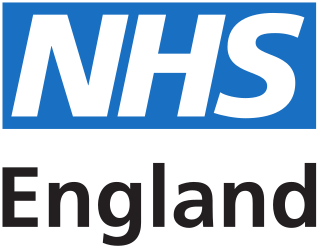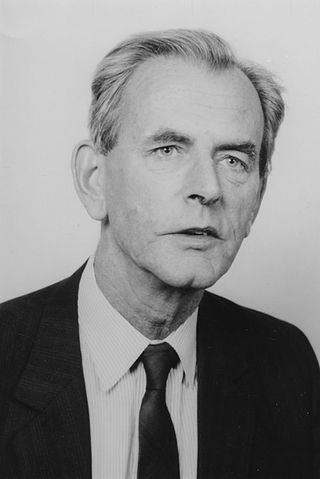Related Research Articles

The Department of Health and Social Care (DHSC) is a ministerial department of the Government of the United Kingdom. It is responsible for government policy on health and adult social care matters in England, along with a few elements of the same matters which are not otherwise devolved to the Scottish Government, Welsh Government or Northern Ireland Executive. It oversees the English National Health Service (NHS). The department is led by the Secretary of State for Health and Social Care with three ministers of state and three parliamentary under-secretaries of state.
NHS Direct was the health advice and information service provided by the National Health Service (NHS), established in March 1998. The nurse-led telephone information service provided residents and visitors in England with healthcare advice 24 hours a day, every day of the year through telephone contact on the national non-geographic 0845 46 47 number. The programme also provided a web based symptom checkers on the NHS Direct website and via mobile, both as apps for iPhone and Android smart phones and a mobile website.

NHS Digital was the trading name of the Health and Social Care Information Centre, which was the national provider of information, data and IT systems for commissioners, analysts and clinicians in health and social care in England, particularly those involved with the National Health Service of England. The organisation was an executive non-departmental public body of the Department of Health and Social Care.

NHS National Services Scotland (NSS) is a public body and national health board of NHSScotland.
A special health authority is a type of NHS body which provide services on behalf of the National Health Service in England. Unlike other types of trust, they operate nationally rather than serve a specific geographical area.

NHS Scotland, sometimes styled NHSScotland, is the publicly–funded healthcare system in Scotland and one of the four systems that make up the National Health Service in the United Kingdom. It operates 14 territorial NHS boards across Scotland, supported by seven special non-geographic health boards, and Public Health Scotland.
Health and Social Care is the publicly funded healthcare system in Northern Ireland. Although having been created separately to the National Health Service (NHS), it is nonetheless considered a part of the overall national health service in the United Kingdom. The Northern Ireland Executive through its Department of Health is responsible for its funding, while the Public Health Agency is the executive agency responsible for the provision of public health and social care services across Northern Ireland. It is free of charge to all citizens of Northern Ireland and the rest of the United Kingdom.
NHS Blood and Transplant is an executive special health authority of the United Kingdom's Department of Health and Social Care. It was established on 1 October 2005 to take over the responsibilities of two separate NHS agencies: UK Transplant, founded by Dr. Geoffrey Tovey in 1972, and the National Blood Service. Its remit is to provide a reliable, efficient supply of blood, organs and associated services to the NHS. Since NHSBT was established, the organisation has maintained or improved the quality of the services delivered to patients, stabilised the rising cost of blood, and centralised a number of corporate services.
The Health Protection Agency (HPA) was a non-departmental public body in England. It was set up by the UK government in 2003 to protect the public from threats to their health from infectious diseases and environmental hazards.
The NHS University (NHSU) was a part of the United Kingdom's National Health Service tasked with training NHS staff. It was abolished in 2005.
The Health and Social Care Select Committee is a Departmental Select Committee of the British House of Commons, the lower house of the United Kingdom Parliament. Its remit is to examine the policy, administration and expenditure of the Department of Health and Social Care (DHSC) and its associated agencies and public bodies. The Clerks of the Committee are Previn Desai and Joanna Dodd.

NHS Supply Chain supports the National Health Service (NHS) in England, and other healthcare organisations in England and Wales, by providing procurement and logistics services.
A chief scientific officer (CSO) is a position at the head of scientific research operations at organizations or companies performing significant scientific research projects.
NHS Scotland is the publicly funded healthcare systems in Scotland. It was founded by the National Health Service (Scotland) Act 1947 and was launched on 5 July 1948, under the control of the Secretary of State for Scotland. As a result of the Scotland Act 1998, control over NHS Scotland transferred to the Scottish Government and Parliament in 1999.

Biomedical sciences are a set of sciences applying portions of natural science or formal science, or both, to develop knowledge, interventions, or technology that are of use in healthcare or public health. Such disciplines as medical microbiology, clinical virology, clinical epidemiology, genetic epidemiology, and biomedical engineering are medical sciences. In explaining physiological mechanisms operating in pathological processes, however, pathophysiology can be regarded as basic science.
The Sustainable Development Unit (SDU) was a British government agency with the purpose of embedding the principles of sustainable development, social value and the wider determinants of health across the health and social care system in England. In July 2022, as part of 'net zero' plans for the NHS, the SDU was replaced with the Greener NHS National Programme.

NHS England, formerly the NHS Commissioning Board, is an executive non-departmental public body of the Department of Health and Social Care. It oversees the budget, planning, delivery and day-to-day operation of the commissioning side of the National Health Service in England as set out in the Health and Social Care Act 2012. It directly commissions NHS general practitioners, dentists, optometrists and some specialist services. The Secretary of State publishes annually a document known as the NHS mandate which specifies the objectives which the Board should seek to achieve. National Health Service Regulations are published each year to give legal force to the mandate.

Brian Abel-Smith was a British economist and expert adviser and one of the most influential figures of the twentieth century in shaping health and social welfare. In Britain, his research for the Guillebaud committee in 1956 proved that the NHS provided extremely good value for money and deserved more investment. From the 1960s he was one of a new breed of special advisers to Labour government ministers – helping Richard Crossman, Barbara Castle and David Ennals to reconfigure the NHS, set up Resource Allocation Working Party, and the Black Inquiry into Health Inequalities. Internationally, he steered the development of health services in over 50 countries. He was a key WHO and EEC adviser, intimately involved in setting the agenda for global campaigns such as Health for All by the year 2000.

The NHS Counter Fraud Authority is a special health authority charged with identifying, investigating and preventing fraud and other economic crime within the NHS and the wider health group, formed on 1 November 2017 under section 28 of the National Health Service Act 2006. It replaces its predecessor NHS Protect, which was part of the NHS Business Services Authority.

The UK Health Security Agency (UKHSA) is a government agency in the United Kingdom, responsible since April 2021 for England-wide public health protection and infectious disease capability and replacing Public Health England. It is an executive agency of the Department of Health and Social Care (DHSC).